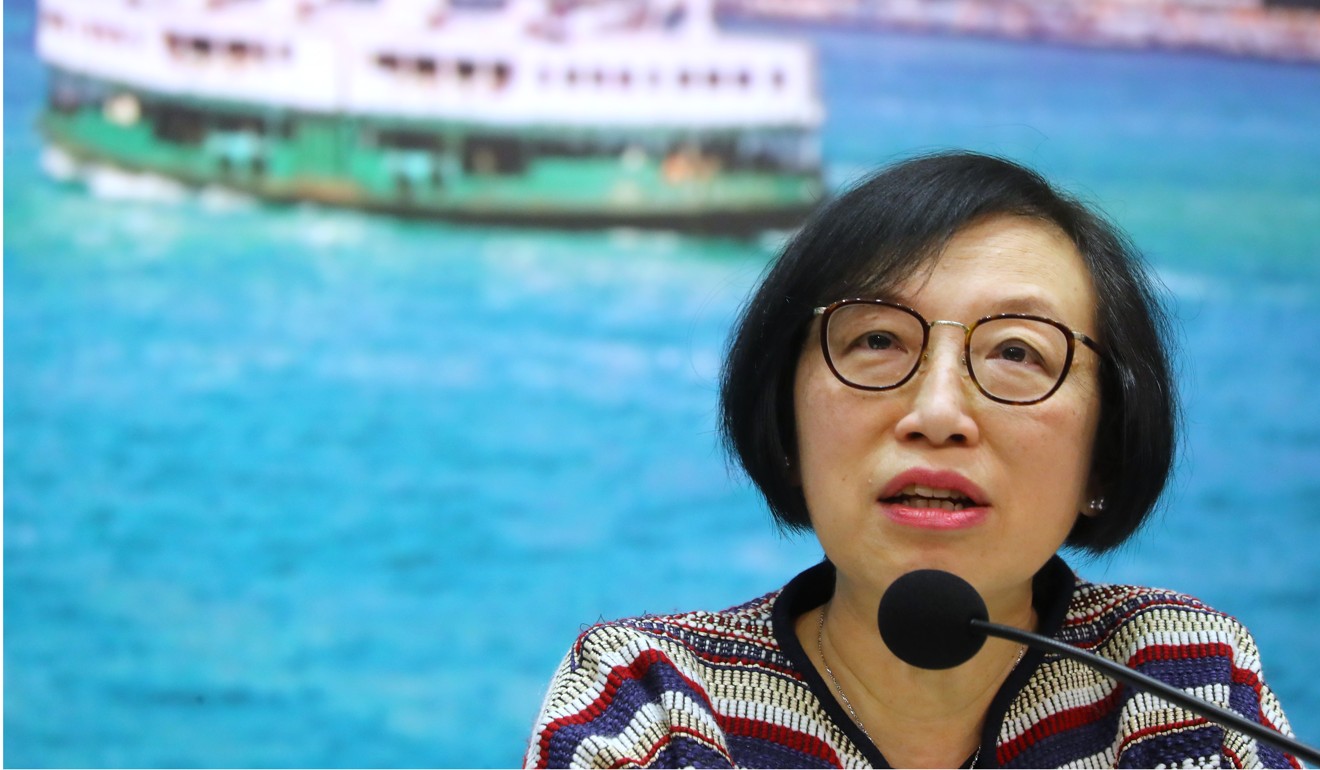
Leave eyeglasses out of medical voucher scheme for elderly rather than cap spending, Hong Kong’s optometrists say
- Vincent Ng, vice-president of Hong Kong Society of Professional Optometrists, says it is unfair to set a ceiling for their services
- He suggests providing eye tests only under the voucher scheme
Hong Kong health authorities should exclude eyeglasses from the elderly health care voucher scheme instead of imposing a blanket spending cap on optometric services, a trade group representing the industry said on Tuesday.
But Vincent Ng Sheung-shun, vice-president of the Hong Kong Society of Professional Optometrists, said it was unfair to set a ceiling for optometric services – which many elderly people needed – and not other areas covered by the scheme, and suggested an alternative.

“Our thinking is this – the elderly have to get their eye tests so why not just provide the examinations only [under the scheme’s coverage]?” he said on a radio programme on Tuesday. “That way, we go back to just providing a professional assessment. If the elderly really need spectacles, they will still have to buy them regardless of health care vouchers.”
Ng said this was something the trade and society could further discuss.
Secretary for Food and Health Sophia Chan Siu-chee on Monday said the cap was set to discourage the elderly from spending all their vouchers on a single service and to ensure a “decent balance” was kept for other more pressing medical needs such as check-ups and preventive care.
Hong Kong’s ex-health chief slams voucher scheme for the elderly
A review by the Department of Health found that claims for optometric services had been disproportionately high in terms of per claim amounts and total expenses, with 76 per cent of all claims above HK$4,000 spent on optometric services.
The median claim at optometrists from 2015 to 2018 was between HK$1,600 and HK$1,951, compared with HK$550 to HK$640 at a regular doctor.
Ng said some elderly residents needed and wanted to spend up to HK$4,000 on corrective lenses or eyeglasses and should have the freedom to do so. And if the government set a cap for such services, they should do the same for others.
If the elderly really need spectacles, they will still have to buy them regardless of health care vouchers
A caller to the show reinforced Ng’s claims, saying she had spent that amount on a pair of glasses with corrective lens and with add-ons such as UV protection, photochromic lenses and a lightweight frame.
“I think it was worth it because I really needed them,” the caller, surnamed Tsang, said.
But Dr Lam Ching-choi, a paediatrician and chairman of the government’s Elderly Commission, said a cap was necessary as the statistics suggested misuse if some elderly people were spending that amount on eyeglasses. He said the government should do more to educate the elderly on how to use the vouchers wisely or check their remaining account balance.

Alex Lam Chi-yau, chairman of the interest group Hong Kong Patients’ Voices, said setting a cap was not ideal as it cut the flexibility of how the vouchers were used but agreed with Lam’s assessment.
He said the fear was that users would spend the vouchers on eyeglasses and run out of money to see a private doctor for more serious issues.
Hong Kong seeks to expand voucher scheme for elderly patients to cover more mainland clinics
Under the existing scheme, introduced in 2009 and regularised in 2014, eligible residents aged 65 or above are given a HK$2,000 voucher annually to help pay for certain medical services in the private sector, to serve their needs and lower the burden on the city’s public system.
Any unspent amount can be carried forward up to a limit of HK$5,000. This was raised from HK$4,000 last year.
There were 5.18 million voucher claim transactions last year, up from 3.48 million in 2017. Around 60 per cent were for visits to doctors, compared with 7 per cent for optometrists.
But optometric services accounted for 27 per cent of the HK$2.8 billion in total voucher claims last year, compared with 41 per cent for regular medical doctors, 20 per cent for Chinese medicine practitioners, and 10 per cent at dentists.

